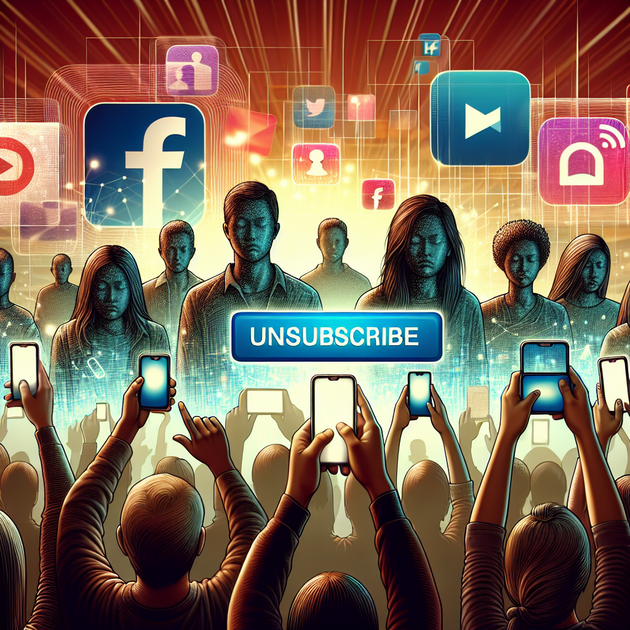What Sparked the Surge in Streaming Service Cancellations?
Here’s something that might surprise you—Disney+ and Hulu reportedly experienced double their usual subscription cancellations in the days following Jimmy Kimmel’s suspension from his late-night show. This spike seems to be tied to a social media-driven call for a boycott of both platforms.
Social media users took to platforms like X (formerly Twitter) and Facebook to voice their frustration over ABC’s decision regarding Kimmel, with hashtags like #CancelDisneyPlus trending nationwide. The result? Both Disney+ and Hulu saw more users than usual clicking “cancel.” This isn’t the first time public sentiment has quickly turned into mass action against a major company—just look at past cases involving other big brands—but it’s rare to see such an immediate impact on high-profile streaming services.
How Social Media Amplifies Streaming Boycotts
In today’s always-online world, one tweet or viral post can snowball into millions of people reconsidering their subscriptions. Social networks act as echo chambers where a single controversy can take on a life of its own.
Some key ways social media impacts streaming service cancellations:
- Viral Hashtags: Hashtags like #CancelDisneyPlus make it easy for users to spread their message rapidly.
- Influencer Endorsements: When popular creators or internet personalities join in, their followers often follow suit.
- Instant Updates: News about events like Jimmy Kimmel’s suspension spreads within minutes—sometimes before companies even release an official statement.
- Organized Campaigns: Online petitions and coordinated calls-to-action give boycotts staying power beyond a single day of outrage.
For example, Variety reported that previous boycotts related to programming decisions have also triggered subscription drops in the past.
The Numbers Behind Disney+ and Hulu Cancellations
What does “double” actually mean in this context? While exact figures haven’t been publicly released by Disney itself at the time of writing, several analytics firms that track app usage and account changes have noted significant spikes in cancellation requests right after the news broke.
According to data cited by CNBC, even minor controversies can trigger cancellation rates to jump by 20-40%. In this case, industry watchers say the increase was closer to 100% compared to normal daily averages.
Here are some possible reasons for these rapid increases:
- Viewers feel directly connected to personalities like Jimmy Kimmel and want to show support or protest through their wallets.
- The ease of canceling online subscriptions makes it simple for upset customers to take immediate action.
- Streaming platforms have become central battlegrounds for cultural debates and public statements.
An Anecdote From the Streaming Trenches
A friend recently mentioned she canceled her family’s Disney+ account not because she was angry with any show or host specifically, but simply because “everyone online was talking about it.” She said she felt part of something bigger—even though she admitted her kids missed their favorite cartoons a week later.
This speaks volumes about how online communities can move people to act on impulse or out of solidarity with a cause—even if they aren’t deeply invested in the underlying issue.
What Does This Mean for Streaming Services?
The trend of Disney+ and Hulu cancellations raises questions about how much influence social media now wields over companies’ bottom lines. In response to previous controversies, some streaming giants have shifted marketing strategies or even adjusted programming to try to avoid future backlashes.
Industry experts suggest that while some viewers end up returning after tempers cool off—especially when new shows drop or exclusive events air—the overall churn rate (the percentage of people canceling subscriptions) is ticking upward across all platforms. As reported by The Wall Street Journal, loyalty is no longer guaranteed when customers feel empowered to cancel at any sign of disagreement or controversy.
So what can companies do? Some possible strategies include:
- Increased transparency about programming decisions.
- More direct communication with subscribers when issues arise.
- Flexible pause or “vacation mode” options instead of full cancellations.
Final Thoughts
The doubling of Disney+ and Hulu cancellations after Jimmy Kimmel’s suspension shows just how quickly online conversations can become real-world business challenges. Whether boycotts stick or viewers eventually come back for another season of The Mandalorian or Only Murders in the Building remains to be seen.
Where do you stand on subscription boycotts—do they shape your choices about which platforms you support?

Leave a Reply